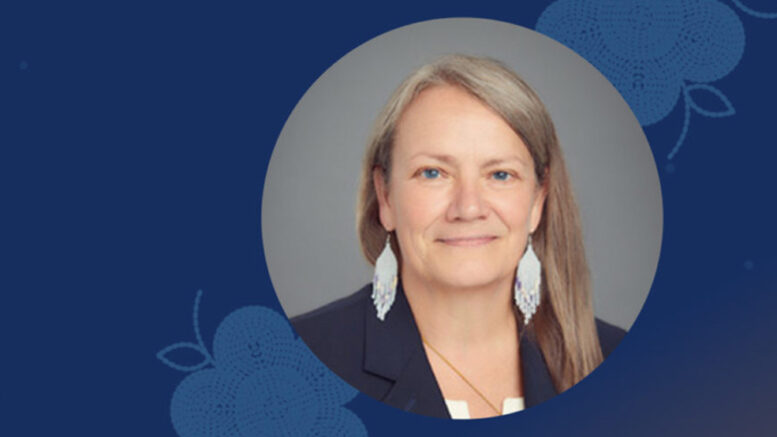By Jeremy Appel, Local Journalism Initiative Reporter
(ANNews) – Canada’s special interlocutor for missing children and unmarked graves and burial sites associated with Indian Residential Schools has released the final report of her mandate, providing recommendations on how the government can honour the memory of the thousands of children who were killed at forced assimilation institutions.
Kimberley Murray was appointed special interlocutor in June 2022, a year after 215 suspected unmarked graves were uncovered at the site of the former Kamloops Residential School, which sparked a wave of similar findings from First Nations across Canada.
Murray’s task was to make recommendations on how to establish a “new legal framework and process to support search and recovery efforts, and to advance reconciliation in Canada,” the 285-page executive summary of her final report, released in full on Oct. 29 in two parts, reads.
Any such legislative framework, Murray noted, must be developed in compliance with Indigenous laws, the United Nations Declaration on the Rights of Indigenous Peoples and the United Nations Convention on the Rights of the Child.
The report proposes an Indigenous-led Reparations Framework to support the “search and recovery of the missing and disappeared children and unmarked burials,” and provides 42 recommendations for bringing it to fruition.
“The Reparations Framework is not a one-size-fits-all model; it is an inclusive, flexible framework that can be adapted and tailored to meet the specific needs of the Survivors, Indigenous families, and communities in diverse Indigenous Nations across the country,” Murray noted.
The special interlocutor emphasized that reparations are about more than just financial compensation. There are also important “material and symbolic reparations,” including repatriation of children, giving land back to Indigenous Peoples, formal apologies, rewriting Canadian history to include Indigenous perspectives, public education, commemoration and memorialization, and legal and policy reform.
This was the third report from the special interlocutor, following a November 2022 progress update report and a June 2023 interim report.
The final report reiterates Murray’s call from last year’s interim report to penalize residential school denialism, as defined by Indigenous Studies academics Daniel Heath Justice and Sean Carleton.
“Residential school denialism,” Justice and Carleton write, “is not the outright denial of the Indian Residential School (IRS) system’s existence, but rather the rejection or misrepresentation of basic facts about residential schooling to … obscure truth about Canada’s IRS system in ways that ultimately protect the status quo as well as guilty parties.”
A private member’s bill introduced in September by Winnipeg Centre NDP MP Leah Gazan, who has mixed Lakota, Chinese and Jewish ancestry, seeks to criminalize “condoning, denying, downplaying or justifying the Indian residential school system in Canada or by misrepresenting facts related to it.”
Murray expressed support for Gazan’s proposed legislation at an Oct. 31 news conference alongside the NDP legislator.
In her report, Murray also calls on the federal government to update its Act to enact the Online Harms Act, which is in the midst of its second reading in the House of Commons, “to address the harms associated with denialism about Indian Residential Schools, including the missing and disappeared children and unmarked burials.”
Stephanie Scott, executive director of the National Centre for Truth and Reconciliation (NCTR), called Murray’s final report “a powerful tool to hold government and church bodies accountable today, and in the years to come” in an Oct. 29 statement from the NCTR.
The statement noted overlap between some of the special interlocutor’s recommendations and the NCTR’s ongoing actions.
The NCTR highlighted Murray’s recommendations for an immediate end to the destruction of any documents “that may contain information relating to the death of a child while in the care of Indian Residential Schools and other associated institutions,” updating federal access to information laws to assist First Nations in accessing relevant documents, ongoing funding for Indigenous-led investigations into missing children and unmarked burials, and ensuring trauma-informed health care is accessible to survivors, their families and impacted Indigenous communities.
While the primary purpose of the report was to provide recommendations to the government on how to proceed with care for survivors, it includes blistering criticisms of a system of “settler amnesty and impunity,” which has allowed perpetrators to evade justice.
Eugene Arcand, a member of the NCTR Survivors Circle, said he appreciates how Murray’s report “reminds us that the struggle isn’t over.”
“The report documents Canada’s deliberate distortion of international human rights law to avoid accountability for the crimes committed through the residential school system and related institutions,” he said in the aforementioned NCTR statement.
After receiving Murray’s final report, Minister of Justice Arif Virani issued a statement that expressed his “sincere hope” that the report and its recommendations “will honour the memory of the children who never returned home from residential schools and will lead to healing for families and Survivors,” but didn’t commit to implementing any of the special interlocutor’s recommendations.
“Kim Murray’s work has contributed significantly to telling and acknowledging the truth. There is still more to be learned, accepted and understood,” Virani said, vowing to “work with First Nations, Inuit and Métis communities to address the ongoing legacy of Indian Residential Schools in a way that respects their wishes and traditions.”



Be the first to comment on "Canada’s Special Interlocutor calls for reparations and accountability in final report on unmarked graves"